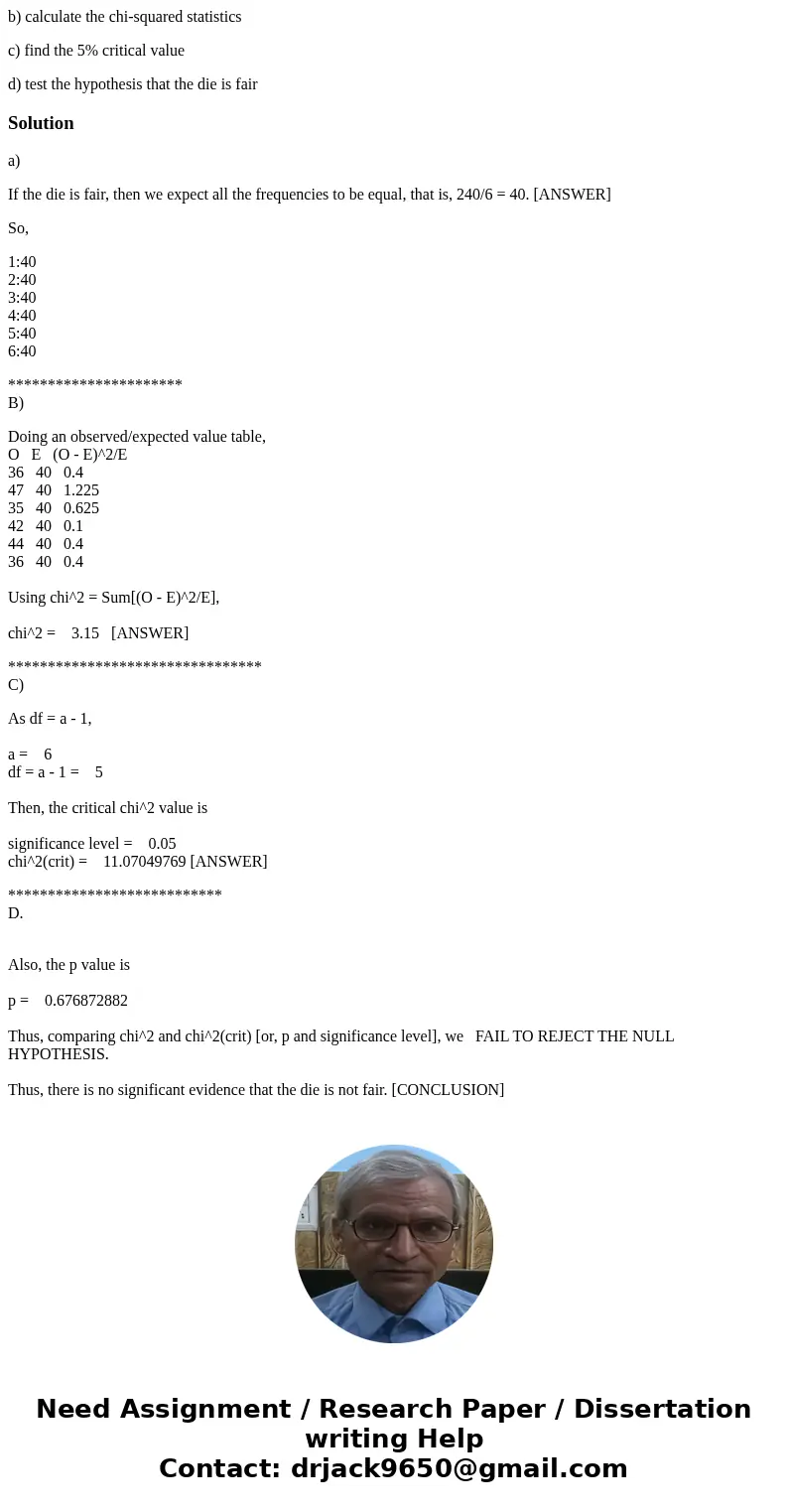Suppose we want to test to see if a die is fair When the die
Suppose we want to test to see if a die is \"fair.\" When the die is tossed 240 times the following results are obtained:
Value of 1; Frequency of 36
Value of 2; Frequency of 47
Value of 3; Frequency of 35
Value of 4; Frquency of 42
Value of 5; Frequency of 44
Value of 6; Frequency of 36
a) find the expected frequencies if the die is fair
b) calculate the chi-squared statistics
c) find the 5% critical value
d) test the hypothesis that the die is fair
Solution
a)
If the die is fair, then we expect all the frequencies to be equal, that is, 240/6 = 40. [ANSWER]
So,
1:40
2:40
3:40
4:40
5:40
6:40
**********************
B)
Doing an observed/expected value table,
O E (O - E)^2/E
36 40 0.4
47 40 1.225
35 40 0.625
42 40 0.1
44 40 0.4
36 40 0.4
Using chi^2 = Sum[(O - E)^2/E],
chi^2 = 3.15 [ANSWER]
********************************
C)
As df = a - 1,
a = 6
df = a - 1 = 5
Then, the critical chi^2 value is
significance level = 0.05
chi^2(crit) = 11.07049769 [ANSWER]
***************************
D.
Also, the p value is
p = 0.676872882
Thus, comparing chi^2 and chi^2(crit) [or, p and significance level], we FAIL TO REJECT THE NULL HYPOTHESIS.
Thus, there is no significant evidence that the die is not fair. [CONCLUSION]


 Homework Sourse
Homework Sourse